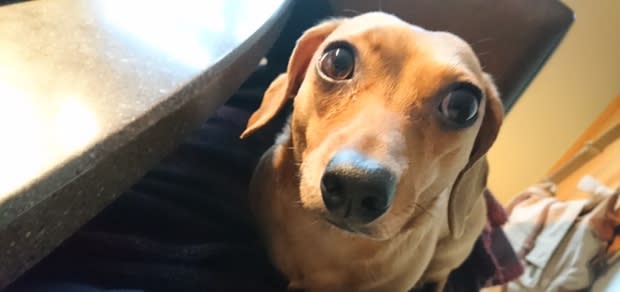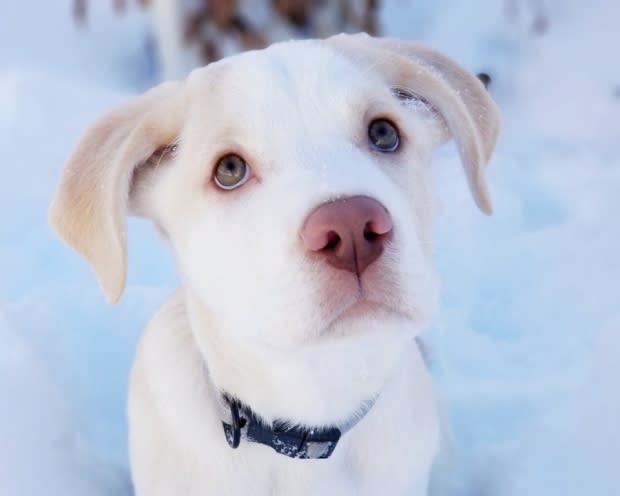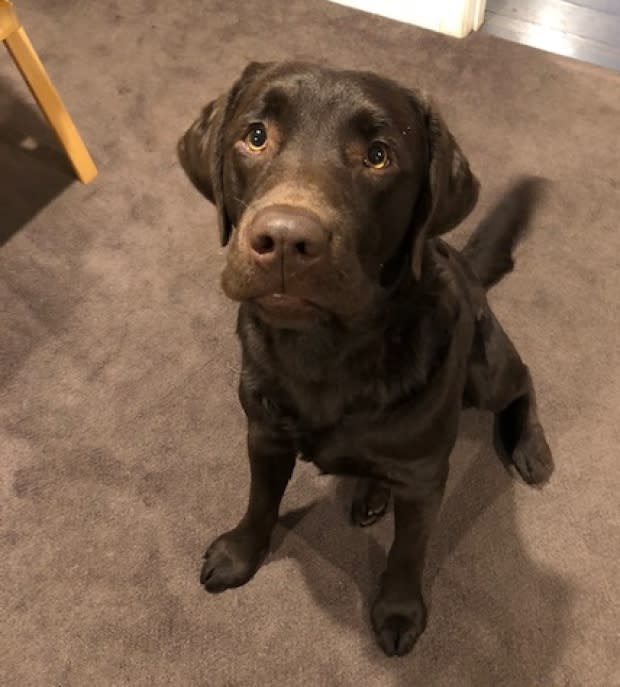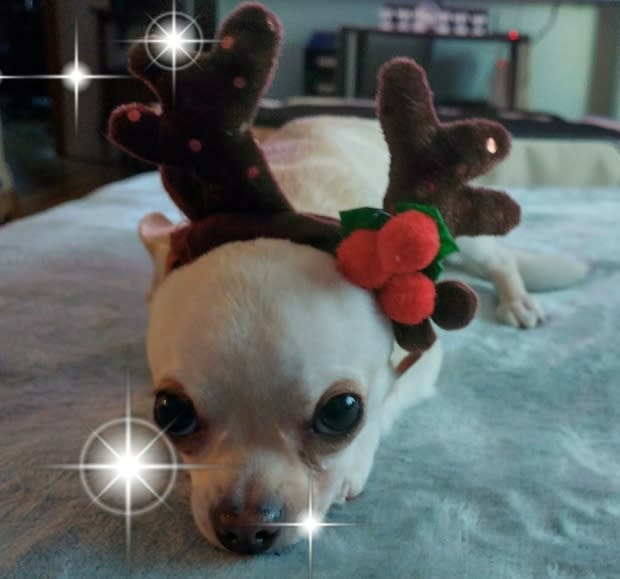Puppy dog eyes are no accident, research study shows
Certain dogs have a way of speaking to humans in a way that is almost hypnotic — the thing we call puppy dog eyes. It turns out puppy dog eyes are no accident. They're a survival mechanism.
Duquesne University professor Anne Burrows spoke to the Calgary Eyeopener on Tuesday about a new research study she conducted into how dogs have developed their puppy dog eyes.
This interview has been edited for clarity and length.
Q: Explain what's happening when the dog is giving you puppy dog eyes?
A. The dogs that do that are really good at manipulating people to do something for them.
We know that people tend to adopt dogs that make this facial expression — more rapidly than dogs that don't do it. So it's something that's really important to people and it's something that works for dogs.

Me personally, when my dog does that to me, I'd drop whatever I'm doing and it typically ends with me giving her a treat.
Q: I've got a dog. I know when the dog's doing it to me, and I even kind of know what it's about. But you actually went further. You became interested in researching the science behind puppy dog eyes. So what's actually happening behind those eyebrows?
A. There's a muscle right in the eyebrow region that elevates the eyebrow.
And if you look in a mirror and make a worried face, you can see that area on yourself. And dogs — all the dogs that we dissected except for one — had that, but none of the wolves that we dissected had it.
So we thought that must be a really important muscle and a really important facial expression.

Q: So let me get this right: dogs are direct descendants of wolves. We agree on that, right?
A. We agree on that. Most people do.
Q: So the earliest wolves are wolf-dog hybrids that came around the fires looking for bones or scraps, and the ones that survived the longest were the ones that could make that face?
A. It seems like people must have bought in and kept breeding those dogs that either did make this facial expression — or it could be that it's just linked to traits related to non-aggressive behaviour. We selected for dogs to have smaller teeth to not bite us or eat our babies. Maybe this facial expression came along with those gentle traits.

Q: So the dogs that were better at giving you puppy dog eyes lasted longer than the dogs that didn't?
A. That seems to be pretty accurate.
Q: And we kept selecting them. So we have a role in the evolution of our own manipulation is what you're telling me?
A. Oh, we did it to ourselves. Yes.
Q: What did they do to dogs to discover this. Can you describe your process?
A. We did a study about five years ago looking at who gets adopted in dog shelters and we've found that dogs that make this face got adopted quickly. So we decided to take a look at the anatomy under that. We wanted to compare it to wolves. So we got some domestic dogs specimens, we got some wolf specimens — and these were all specimens that had died in other settings.
We didn't kill any specimens for this study. We dissected the faces and found this muscle in dogs and not in wolves.
Then we also videotaped dogs and wolves' faces and found that wolves don't do this.

So it genuinely is something that's linked to dogs and their special co-evolution with humans.
It's something that's really important to us.
Q: And there are some breeds of dogs better at it than others. Does the husky do sucky face as well as my Yorkie?
A. That's debatable. We did not find this muscle in the husky, which is really interesting because huskies are considered to be an ancient dog breed much closer to the origin of dogs. The toy companion breeds like the Yorkie are much further away from wolves and all of the small dogs that we dissected had this muscle.
So our next steps include getting a wider sample of these ancient dog breeds to see what they look like.

Q: Just curious how many hours of photos and videos of dogs making that face you've looked at over the last few years.
A. You probably wouldn't want to know. There's an insane number of hours.
Q: It doesn't mean you can't trust your dog. He still loves you even if he is manipulating you, right?
A. Well of course, and we love them right back.

With files from the Calgary Eyeopener.


